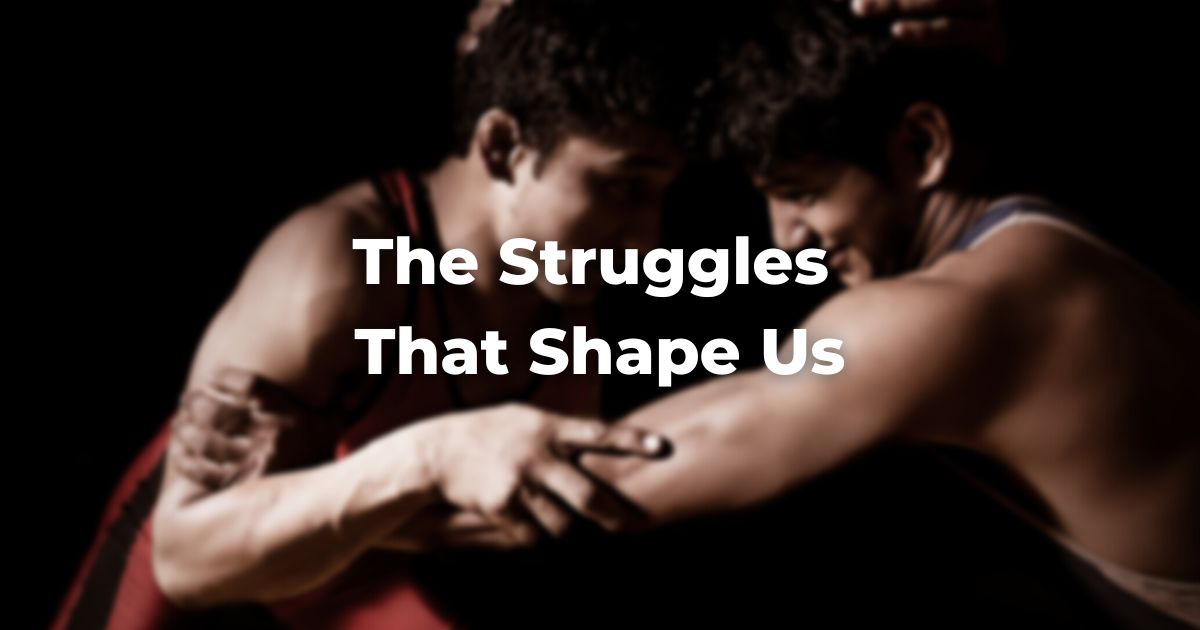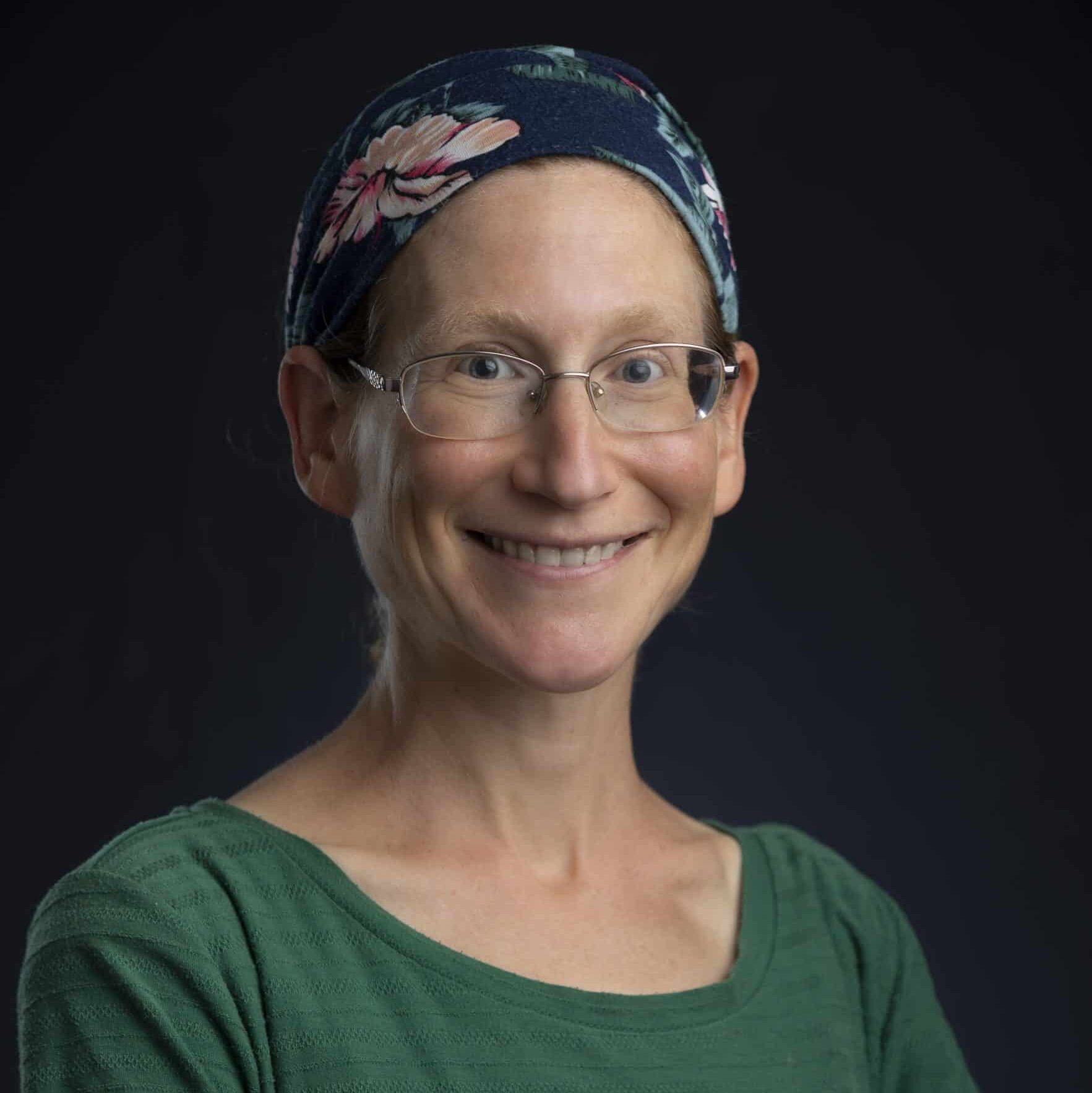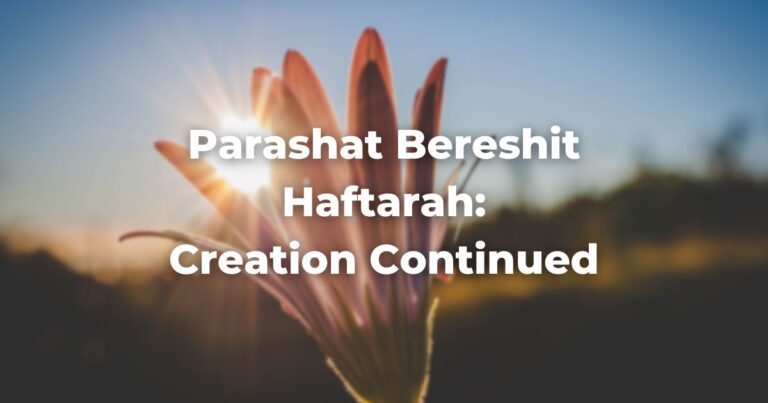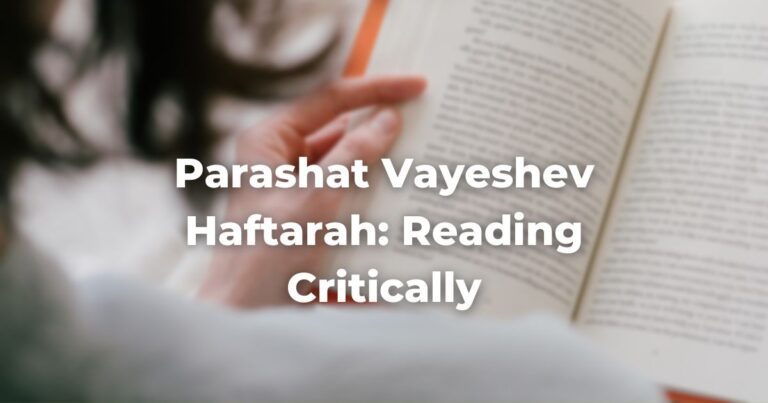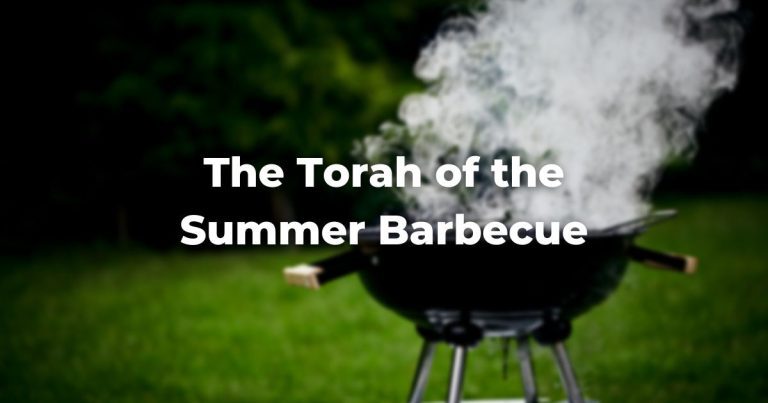On the eve of Jacob’s climactic re-encounter with his brother Esau, he finds himself alone at night on the banks of the Yabbok after having sent his wives and children ahead. There he wrestles with and prevails against a mysterious aggressor, who wrenches Jacob’s hip at the socket.
In response to Jacob’s request for a blessing, the assailant renames him Israel.
What is the significance of this name change, and how does it transform Jacob?
The midrash recounts a dialogue between Jacob and the angel that sheds light on the significance of names and the ways we are able to define and redefine ourselves over the course of our lives.
Until this point in his life, Jacob has been defined by his struggle with his twin brother Esau. He received his name because he tried to prevent his brother from being first to exit the womb by holding on to his heel; the name Jacob comes from the Hebrew word “akev”, meaning heel.
Rashi—on Genesis 25:29—explains that Jacob was conceived before Esau and therefore felt it was only right that he should be born first.
According to this reading, Jacob was born with a sense of resentment and grievance; he believed that he was meant to be the firstborn, and he spent his childhood defining himself in relation to his brother. While Esau became a hunter and an outdoorsman, Jacob became just the opposite—a mild man dwelling inside his tent.
Moreover, he seized every opportunity to attempt to redress the injustice he felt was committed in utero.
First he took advantage of his brother’s hunger and exhaustion to buy his birthright. Then—abetted by his mother—he disguised himself as Esau and claimed the blessing meant for the firstborn, not just tricking his brother but trying to become him. He even fled to Haran for twenty years to escape his brother’s wrath, unable to regard himself as anything other than a kid brother grasping on to his older brother’s heel, never quite able to prevail in that struggle.
And then, in our parashah, Jacob has an encounter that changes the way he views himself.
At night by the banks of the Yabbok he thinks he is wrestling with a man, but when he emerges victorious, he is told that he has in fact wrestled with a divine being. His aggressor asks him his name, and he responds “Jacob”—he continues to see himself as the frightened kid brother. But the angel tells him otherwise: “Your name shall no longer be Jacob, but Israel, for you have striven with beings divine and human and have prevailed.” (Genesis 32:29).
Jacob is the only one of the patriarchs or matriarchs who receives a completely different name—unlike Sarai who becomes Sarah, or Abram who becomes Abraham, it is not just a single letter that is changed or added to his name. And yet as Yakov Z. Mayer notes in his book Drishot (Yediot 2016, untranslated), Jacob only grasps the full significance of his name change after he asks his aggressor to tell him his name, and receives a surprising answer.
Jacob says to the angel, “Pray tell me your name,” wishing to know the identity of the being he has prevailed against. But he is told in response, “You must not ask my name” (Genesis 32:30).
According to the midrash (Genesis Rabbah 78:4), the angel does not reveal his name because he cannot, since he doesn’t even know it.
The midrash connects this verse to another encounter between a human and angel that appears in the book of Judges: Manoach, who will soon become the father of Samson, inquires about the name of the angel he and his wife have encountered, and the angel responds, “Why do you ask my name? It is unknowable” (Judges 13:18).
The midrash explains that angels do not know their own names because their names are ever-changing based on the particular mission they are sent to accomplish at any given moment. They are defined by their missions, and with each mission, they receive a new name.
At this point, as the sun rises after a night of struggle, it dawns on Jacob that he has the power to decide how he will be defined.
Just as the angels change names based on their mission, he can control which experiences will determine the way he regards himself.
He is not just Jacob who is caught in a prolonged struggle against Esau, but also Israel who wrestles with a divine being.
Moreover, he is not just Jacob who lost the struggle even before he was born, but also Israel who emerged victorious even at a particularly fraught and vulnerable time in his life when the odds were against him.
Armed now with this knowledge of the power of naming and renaming, Jacob names the place Peniel, meaning “I have seen a divine being face to face, yet my life has been preserved.” (Genesis 32:31). He will no longer think of the banks of the Yabbok as the place where, all alone, he quaked in his boots before encountering his intimidating older brother; now it becomes, in his consciousness, the site of a divine encounter.
With his new name, Jacob will have no trouble confronting his brother confidently and assuredly, seeking for the first time not to take from his brother what he believes is rightfully his or to bribe him to win his favor, but rather to share his bounty.
“Accept from me this gift,” he will tell his brother, “for seeing your face is like seeing the face of God” (Genesis 33:10).
Jacob, now well-heeled, no longer sees himself as grasping on to his brother’s heel, ever trying to catch up and best Esau.
Now, after the encounter with the angel, he realizes that in so many ways, he has already prevailed. No longer weighed down by his own fears and insecurities, he is able to see the face of God even in his longstanding sibling-rival.
Like Jacob, none of us has full control over the struggles life will present to us.
There is so much that is determined even before we are born, like our genetics, our birth order, and the cultural and historical milieu in which we are raised. Nor can we fully control when we will be prevailed upon, and when we will prevail.
But we can choose which struggles will define the way we view ourselves.
From Jacob we can learn to choose which experiences will shape our sense of self, so that we find ourselves transformed and ennobled by our struggles.
See More: Parashat Vayishlach
Originally posted as part of the Conservative Yeshiva at the Fuchsberg Jerusalem Center’s Torah Sparks. Support Torah learning from the Fuchsberg Jerusalem Center/Conservative Yeshiva for leaders and seekers around the world here.
Authors
-

Ilana Kurshan teaches Talmud at the CY. She is the author of If All the Seas Were Ink (St. Martin’s Press, 2017) and Why is This Night Different From All Other Nights (Schocken, 2005). She has a degree in History of Science from Harvard and in English literature from Cambridge, and has worked in literary publishing both in New York and in Jerusalem – as a translator, a foreign rights agent, and as the Books Editor of Lilith Magazine. Since October 2020, Ilana has been a regular contributor to Torah Sparks, FJC’s weekly parashat hashavuah blog.
-



The Fuchsberg Jerusalem Center (FJC) is a home in the heart of Jerusalem where leaders and seekers can find an authentic place in Jewish tradition to call their own. FJC offers opportunities to study, pray and explore within an egalitarian and inclusive setting, creating multiple pathways for finding personal and communal meaning.
